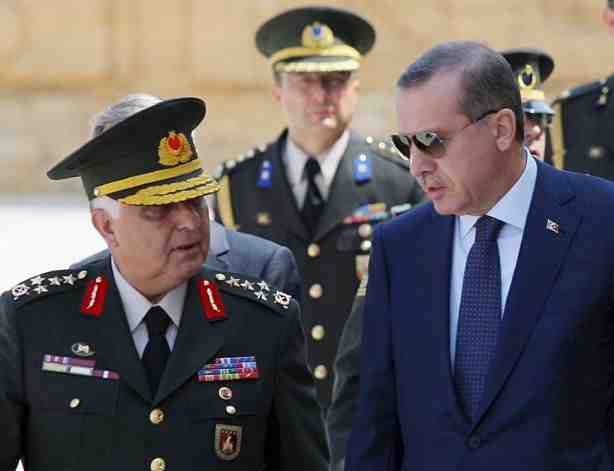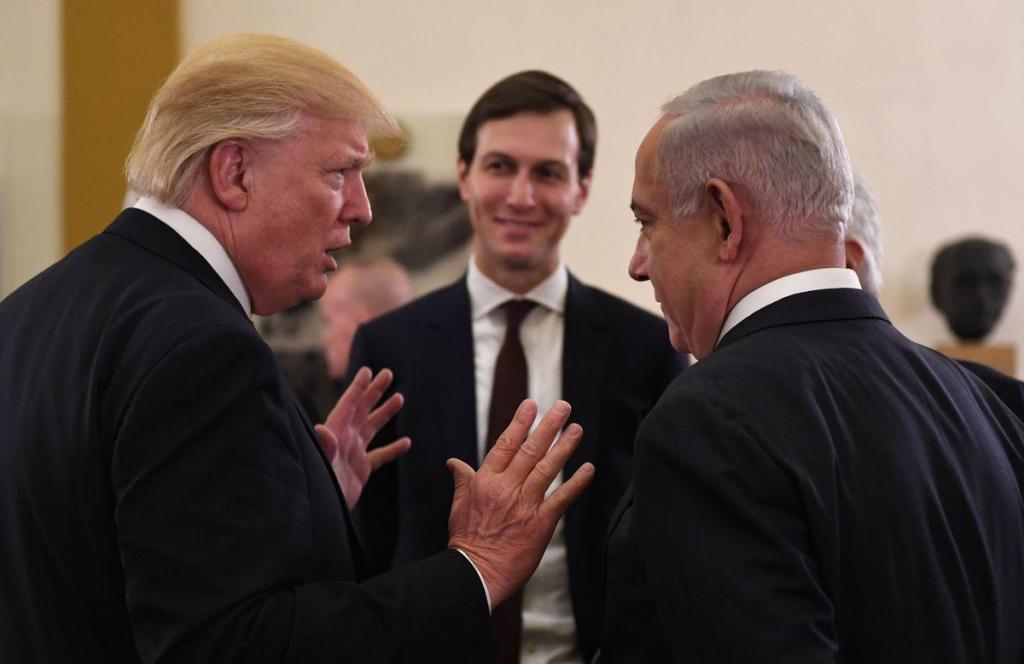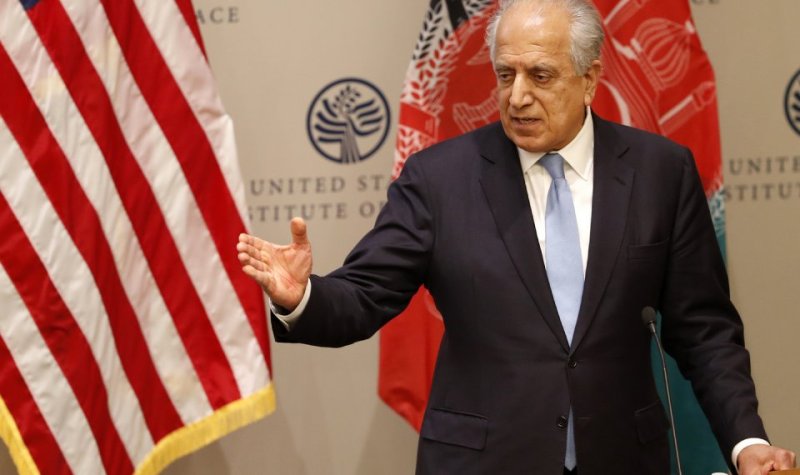Q&A: Resignation of Turkey’s top military chiefs

بسم الله الرحمن الرحيم
Question and Answer
Question: Turkey’s Armed Forces Chief Of Staff General, Isik Kosaner along with General Erdal Ceylanoglu, the Chief of Army, Admiral Ashraf Ugur Yigit, the Chief of Navy and General Hasan Aksay, the Chief of Air Force announced their resignation on July 29th , 2011 and requested for retirement. They represent the highest level of the military leadership, along with military police chief, General Necdet Ozel, who did not resign. He has been announced to be the next army chief and is now the acting chief of staff.
So what have been the motivations for this? Is it an internal matter of Turkey, i.e. the conflict between the armed forces and the government over power sharing, or is it due to international conflicts? Furthermore, what are the possible ramifications of these resignations?
Answer: By observing the situation and the relevant events, it becomes clear that this is caused by international conflict but spurred by the local situation. To explain it further we wish to mention the following:
1: These resignations have come when intense tension surfaced recently between the military and political leadership of the country, represented by the President of the Republic and the Prime Minister and his government. One of the main reasons for this was the continued arrests of military generals accused of attempting to topple the government. The latest of this was today (29th July, 2011), coinciding with the resignation of these officers when the Attorney General of the Tribunal’s thirteenth session in Istanbul pressed the court for harsh punishments. According to its announcement, after taking the approval of the members of the court, issued orders for the arrest of 22 persons including, 7 generals which include General Nusret Tasdeler, the commander of Turkey’s Aegean Army and former commander of the First Army retired General Hasan Igsiz.
Under article 312 of the Turkish Penal Law it states: “Anyone who attempts to use force and coercion to topple the government of the Turkish Republic or to disrupts work in full or in part, shall be liable for life-imprisonment.” The court announced that it ordered their arrest so that all evidences pertaining to them may be gathered, and also because there is the possibility of such punishment being meted out to them, the court issued orders for their arrest and imprisonment, since these men are still serving officers in the armed forces.
It may be mentioned that the arrests of retired military personnel along with politicians, journalists and writers affiliated to Kemalst fronts had been initiated in mid-2007, with respect to officers participating in the “Ergenekon” conspiracy to overthrow the government by force. This was exposed in early 2010, during the investigations into another conspiracy against the government, which had taken place in the year 2003 under the Balyoz, or the so-called “Sledgehammer” conspiracy. The implications of this case are still under way and arrests of serving senior military officers continue along with retired officers of the armed forces.
2: Last year, just nine days prior to the Supreme Military Council (YAŞ)’s meeting in August 2010, on the issue of promotions and retirements, which is an annual affair, Istanbul’s 10th Court for Serious Crimes issued warrants for the arrest of 102 serving and retired officers, which included 11 generals who were expecting promotions. On the same day, a compromise was struck about certain high-ranking officers, whereby they were neither to be arrested nor retired, only their promotions were stopped. These included General Hassan Igsiz, commander of the First Army, who was one of the most important persons accused in the case. The military leadership was insisting on his promotion to become the Chief of Army Staff but Abdullah Gul, the President of the Republic and Erdoğan, the Prime Minister had flatly refused to promote him. Now today, i.e. on July 29th, 2011, the Attorney General issued arrest warrant to arrest General Hassan Igsiz along with other generals.
It may be mentioned that the former chief of staff Mehmet İlker Başbuğ, who retired last year, had advised that the commander of the First Army, General Hassan Igsiz be promoted to become Chief of Army Staff, so that later on he could become the Chief of General Staff in accordance with the Turkish military hierarchy. According to some well-informed military sources, the reason for this advice was the former chief of staff, Mehmet İlker Başbuğ, mentioned that “he wanted to ensure progress in the ‘plan to fight reactionary forces’ in which General Hassan Igsiz is with us as a member of our group, and therefore we should work for his promotion so that he becomes the next Chief of General Staff,” in keeping with the practice as mentioned earlier.
But General Mehmet İlker Başbuğ’s planning failed last year, through accusations levelled by Erdoğan, with which General Hassan Igsiz was charged by the Attorney General along with others. The Attorney General’s issuing of arrest warrants today to arrest this general along with others is a decisive blow to the pro-British Kemalist forces. These generals know and have learnt that the British have bestowed their bounties upon them and that they were the ones to have founded and supported the republic and had helped Kemal Atatürk come to power after having destroyed the Khilafah and established the Republic. The generals are aware that Kemal Atatürk was aligned with and fascinated with the British, as was his associate İsmet İnönü, who was considered second only to Ataturk and was likewise loyal to the British. It was the British who placed him in a position of power and backed him after the death of Atatürk. This is what they have learnt about these two men who are held in great esteem by them. Thus the loyalty of these generals lay automatically with the British and they look upon Erdoğan’s government and its pro-US stance as their rivals.
3: The British agents in the military and other agencies tried to topple the pro-US Erdoğan government and thus strike a blow to Erdoğan’s party and scuttle his moves in the ‘Operation Sledgehammer’ as well as the ‘Ergenekon’ conspiracy, through the Constitution Court, which in 2007 warned Erdoğan of being banned, if he violated the Kemalist secular principles again. This was due to the law enacted in the parliament by Erdogan and his AKP party, which calls for ‘not denying the rights of those studying in universities and higher educational institutions due to their dress or general appearance’.
Thus Erdogan’s links to the US, as well as that of his party, and the government is well-known to every one. Erdoğan implements American policies in foreign affairs and works to support US interests both internally as well as externally, whilst working to consolidate American influence internally. Erdoğan worked to incorporate constitutional amendments to bring about a presidential form of government, with wide ranging powers for the republic’s president. He also planned to curtail military powers to prevent it from interfering in political affairs, and to make the political apparatus control the military set up and not the reverse of it, which is the reality even today. Erdoğan also tried to convert Turkey into a federal structure in order to solve the Kurdish conflict, in accordance with the American vision. Under such a federal system, it was envisaged that the Kurd-majority provinces will be given autonomy or a federal system similar to what the US implemented in Iraq, when it formulated a new constitution during its civilian rule under Bremer. Whilst Britain, in order to safeguard its influence in Turkey, tried to topple the Erdoğan government or overthrow it through its Kemalist loyalists in the military, justice and other sectors.
4: Along with this, of late, the Turkish soldiers were exposed to attacks by elements from the Kurdish PKK which included the Silvan, Diyarbakir attack on 14th July 2011 which left 13 soldiers dead and 7 other soldiers injured. The media, loyal to the government, stoked public opinion against the military leadership by posing questions implying complicity of the military leadership in the attacks for the political objectives against the government. In the aftermath of this attack, Erdoğan, along with the president of the republic, met with the Chief of Staff and walked out of the meeting in anger and declared that he would increase the number of police force equipped to fight the so-called war on terror to 15,000, as well as increase its effectiveness and capabilities so that its worked with the gendarmerie force. He also declared that he would authorise the governors of Turkey’s provinces to seek the help of land forces, and all of this would be accomplished under the aegis of the Interior Ministry, so that the forces are able to engage in combative action with the elements of the Kurdish PKK rebels.
Erdoğan thus ensured that this scepticism grows into a lack of confidence in the military leadership and exploited this event to announce strengthening of a special police force equipped to fight terrorism, which would be a special force under his control. This was similar to what Turgat Ozal did, whose model Erdoğan said he follows. He said that Ozal formed rapid deployment police forces during his era, but after Ozal’s departure from power, the armed forces were able to weaken this force and destroy its effectiveness. Through such manoeuvres, Erdoğan also aims to bring the army under governmental control by linking it with the Interior Ministry and placing the land forces under the command of the regional governors in the interior. Thus the conflict between Erdoğan’s government and the armed forces intensified.
5: The en-masse resignations of those who are in the higher echelons of the military leadership came as a surprise after the conflicts and tensions. It appears that these men intended to embarrass and pressurise the government in order to demonstrate their stance of being opposed to government policies and thus win public sympathy. It may be noted that the army, air force and the navy commanders had already reached the age of superannuation and would be retiring anyway by the time of the military’s consultative council, which is scheduled to be held after two days, i.e. on August 1st, 2011.
Furthermore, certain well-informed sources have reported that at the recent meetings between the military leadership, Gul and Erdogan, the military leadership demanded the promotions of General Saldaray Berak, the Commander of the Third Army as the Chief of Army Staff and that of General Aslan Guner, Deputy Chief of the General Staff, to be promoted as Commander of the gendarmerie force, and this was turned down by Abdullah Gul and Erdogan in no uncertain terms. They declared that they would not sign upon the promotions of these commanders, rather with the indications of the accusations levelled against these officers in the conspiracy to over throw the government, their retirement could not be ruled out.
Thus it appears that those generals realised that in the future meetings of the military council, they would not be able to achieve their aims and hence they resorted to use the last available means in order to pressurise the government, as well as motivate their friends in the military against the regime, and thus they submitted their resignations. The Army Chief has been succeeded by the Gendarmerie Forces Commander, Gen. Necdet Özel who is known to be close to the present government and its political dispositions. It also appears that Gen. Necdet Özel does not actually belong to their camp and the military leadership did not want him to be the commander of the Gendarmerie Forces last year, and in fact were working to scuttle his chances at this years meeting, which is to be held within days, but they failed. Erdogan and Abdullah Gul had worked for Gen. Necdet Özel’s promotion at the cost of others, so that he could replace them, Gen. Necdet Özel was expected to become the army chief at the next scheduled appointments, so that after two years he could become the Chief of General Staff when General Isik Kosaner reaches the retirement age, which will force him to leave as head of the general staff under the army’s promotions and retirement rules.
Moreover, it appears that General Isik Kosaner realised that when commanders of his group resign, he would be left alone since none of his close circles would be promoted, and he would be surrounded by generals from other factions loyal to the government or those who have some understanding with it, particularly Gen. Necdet Özel. This is why General Isik Kosaner opted to resign instead of being rendered almost incapacitated thus he would be rendered lame and almost powerless to take decisions of his liking, especially if he had to go against the wishes of the present government. This is why, General Kosaner resigned, and requested retirement two years before it was formally due.
6: As for the consequences of these resignations, it is expected that after being made the acting chief within two hours of these resignations, after an emergency meeting between Gul, Erdogan and Gen. Necdet Özel, he would be declared as the next Chief of General Staff as well as the Chief of Army Staff, by the president of the republic. Also the political system of Turkey, as represented by the government, the republic’s presidency and the parliament, which is under the control of the AKP, may now have the chance to exercise control over the armed forces by appointing those it wishes, and those who demonstrate their closeness to the policies of the political establishment, and those whom the political establishment observes to be pro-American or treading its line.
This regime will keep working to purge all the people who oppose this trend and that will appear after two days when the military supreme consultative council meets to discuss the promotions of the officers and their retirement. Thus we can say that America began tightening its control over the army and strike the most important strongholds of the British in Turkey.
7 – The initial comment of the BBC was, “mass resignations of the leaders of the military as a result of the continuing tensions in years between the government and the army.” The Guardian on its site stated similar to that. So the British and their agents express their concern for the outcome of the situation in Turkey as a result of their defeat in one of the battles of the conflict with the pro-American political regime. As for the reaction of the Americans, it was normal not to show their concern, rather reflect satisfaction at what is happening in Turkey. Mark Toner, US State Department Spokesman, described the resignations as, “an internal Turkish matter.” He expressed the US administration’s confidence in the current Turkish political system, saying, “our confidence in Turkey’s institutions is absolute.” (Voice of America site 29/07/2011)
Thus, we can say that what happened is a result of an international conflict, with a domestic trigger.
28 of Sha’ban 1432 H
29/7/2011





